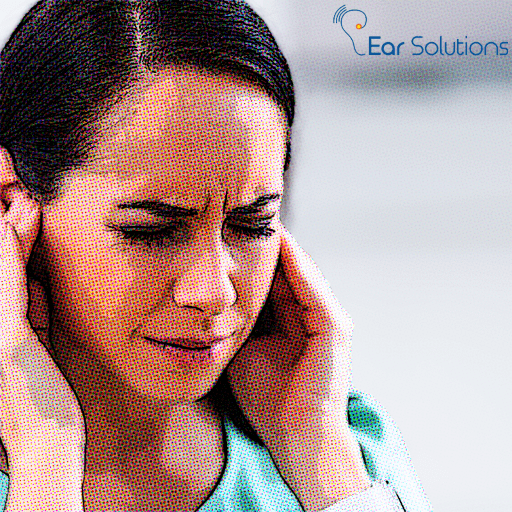A person who is not able to hear properly as well as someone with hearing thresholds of 20 decibels or better in both ears is said to have hearing loss.
Hearing loss may be mild, moderate, severe, or profound. It can affect one ear or both ears which leads to difficulty in hearing conversational speech or loud sounds.
Over 5% of the world’s population requires rehabilitation to address their hearing loss. It is crucial to understand every aspect of hearing loss to get proper consultancy and treatment for it. To fully explore the concept of hearing loss, we must first comprehend some of the common types of hearing loss. In this Blog, we will be discussing the most common types of hearing loss, and what are the treatment options.
Types of Hearing Loss:
Hearing loss is a common condition that affects people of all ages and can degrade the quality of life of any individual. Understanding the different types of hearing loss is crucial for proper diagnosis, treatment, and management. Here, we delve into the three main types of hearing loss: conductive hearing loss, sensorineural hearing loss, and mixed hearing loss.



Conductive Hearing Loss:
Conductive hearing loss occurs when there is a problem in the outer or middle ear that prevents sound from reaching the inner ear. This type of hearing loss can be caused by conditions such as earwax buildup, ear infections, fluid in the middle ear, perforated eardrum, or abnormalities in the ear canal or ossicles (small bones in the middle ear). Individuals with conductive hearing loss may experience muffled or reduced sound, difficulty hearing faint sounds, and a sense of ear fullness. In many cases, conductive hearing loss can be treated medically or surgically, leading to a significant improvement in hearing.
Sensorineural Hearing Loss:
Sensorineural hearing loss is the most common type of permanent hearing loss and occurs due to damage or malfunction in the inner ear or auditory nerve pathways to the brain. This can be caused by aging (presbycusis), exposure to loud noise, genetics, certain medications, infections, head trauma, or other medical conditions. Sensorineural hearing loss results in difficulty hearing sounds clearly, understanding speech, and distinguishing between different frequencies. It may also cause tinnitus (ringing in the ears). Sensorineural hearing loss is typically irreversible, but it can be effectively managed and treated with the use of hearing aids or cochlear implants.
Mixed Hearing Loss:
Mixed hearing loss is a combination of both conductive and sensorineural hearing loss. It occurs when there is damage or impairment in both the outer or middle ear and the inner ear or auditory nerve pathways. Individuals with mixed hearing loss experience a combination of symptoms from both conductive and sensorineural hearing loss. The conductive component can sometimes be treated medically or surgically, while the sensorineural component may require the use of hearing aid machines or other amplification devices.
It’s important to note that hearing loss can vary in degree, ranging from mild to profound, depending on the severity of the impairment. It can affect one ear (unilateral) or both ears (bilateral). Regular hearing evaluations by a qualified hearing healthcare professional are essential for diagnosing the type and degree of hearing loss accurately. This allows for appropriate treatment and management options to be recommended, such as hearing aids, assistive listening devices, or medical interventions.
If you suspect you or someone known has hearing loss, it is advisable to seek professional evaluation and guidance from an expert audiologist or hearing care specialist. They can provide a comprehensive assessment, diagnosis, and personalized treatment plan to address the specific type and degree of hearing loss, helping individuals regain their hearing abilities and improve their overall quality of life. And if you’re having trouble finding a place to receive the right help, Ear Solutions is a reliable name. You can seek assistance from a knowledgeable and committed audiologist by visiting Ear Solutions Hearing Aid Clinic near you.





